Calling all vegetarians: what makes you shun meat? Speaking as a pescatarian, I defend my eating habits, when provoked, by citing the role industrial livestock farming plays in worsening our climatic outlook. But yesterday the UN Food and Agriculture Organization made a timely announcement, in light of today's report from the Intergovernmental Panel on Climate Change. Using the IPCC's new guidelines for calculating greenhouse gas production, they show that the meat and dairy industry could reduce its emissions by up to 30%.
So where does that leave the stalwart, carbon-conscious veggie? On the defensive, some might say. As the IPCC rolls out its climate appraisal, the overall impact of industrial animal farming bears thinking about. The FAO's last livestock report, a 2006 assessment titled Livestock's Long Shadow, found that farms breeding chickens, pigs, and cows for meat and dairy products, produced a disconcerting 18% of global greenhouse gas emissions.
Despite being called into question, that figure strengthened the case for vegetarianism: it was shown to be higher than the greenhouse gas discharge from cars and planes combined. The latest FAO study lowers that number to 14.5%. But this time round, what has commanded attention is the suggestion that the livestock industry can slash this already reduced estimate by a third.
Considering that for many, the 18% emissions figure of 2006 became such a powerful justification for avoiding meat, will these new, friendlier figures rock the vegetarian resolve? Should the FAO's renewed data fuel wild arguments that meat eating is devoid of impact—as happened before in response to the last lot of findings? I don't think so, and here are the simple reasons why.
Firstly, there's the issue that when it comes to livestock, reducing emissions isn't the only challenge. Duncan Williamson, corporate stewardship manager at WWF-UK, voiced his concern yesterday in a press release response to the FAO study. "Around 30% of global biodiversity loss can be attributed to livestock production, such as the spread of pasture land or turning over forests and savannahs…to feed production." There's also the role that consumers play in driving unsustainable industries—a feature that was beyond the scope of its current report, the FAO explained.
Then there's the FAO's new emissions estimate. Fourteen-and-a-half percent is still a considerable slice of the emissions pie, and it's a figure that already oversteps the 13% that comes from global transport each year. This means livestock maintains its position as one of the globe's primary contributors of human-caused greenhouse gas.
Most importantly, there's that impressive 30% dip we're all hoping to see. In their study, the FAO aims to show that while currently, methods to reduce the impact of livestock are only applied on a small-scale, "their adoption and use by the bulk of the world's producers can result in significant reductions in emissions." It's an exciting prospect, but it has complex implications.
Reaching that 30% means livestock farmers need to increase efficiency and reduce waste globally. On the ground, that amounts to formalised government policies that drive farmers to employ methods that bolster herd productivity, use better quality animal feed to reduce methane release, and recycle emissions-producing manure, among many other things.
This proactive approach the FAO outlines is key. And yet the 30% drop remains a what-if scenario; a reality that will take years to implement globally, if it gets rolled out globally at all. The key to success is "joint action" as the FAO puts it—hardly an easy feat to pull off.
Since some have quashed the link between meat and rising greenhouse gases before, one expects a similar knee-jerk response might arise in response to these findings. But to view the FAO's hypothetical 30% estimate as a sound reason to continue consuming meat as we do would make a mockery of the results, especially since the FAO asserts that meat and milk consumption is going to rocket by 70% by 2050.
This is not about bashing meat-eaters and attempting to convert the globe to vegetarianism. Consumers of chicken, pork, and beef should rather feel empowered, since they are the indisputable drivers of an industry that has the capacity for immense change. Meanwhile, vegetarians can rest at ease, confident that one of their most important arguments for avoiding meat has not been undermined.
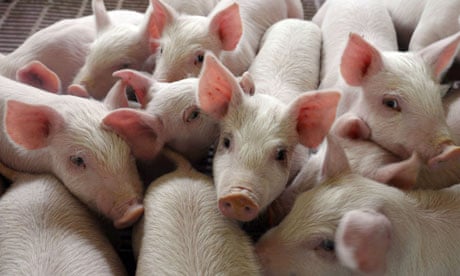

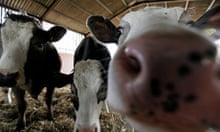
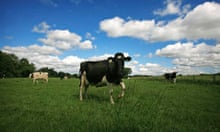
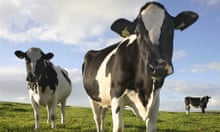
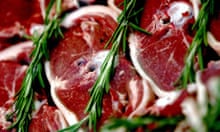

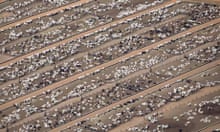



Comments (…)
Sign in or create your Guardian account to join the discussion